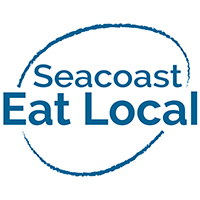Let us connect you with customers!
Seacoast Eat Local serves local food producers, farmers, and fisheries by connecting you to new customers. There are many ways you can become involved in our programs including:
- •Become a Farmers’ Market vendor at our Summer or Winter markets
- •Learn how to host an Educational Workshop to share your story with local eaters
- •Benefit from incentive programs such as Granite State Market Match and Vouchers for Veterans
- •Get your business listed in Seacoast Harvest, our free local food guide
The first question you might have is: How do I know if my local food business is eligible to participate in Seacoast Eat Local’s programs? We have an easy to follow guide that includes our definition of different types of food businesses and criteria for how each one of them can participate in our programs. View the guide by clicking here or the button below. Businesses must meet all criteria outlined. If you have questions, please contact us at [email protected].
Join our community of Seacoast area food producers by filling out our local food business intake form. This will give us a chance to learn about your business and add you to our email list. We send about six e-mail newsletters each year dedicated farmers and food producers. This is the best way to stay informed about how to become involved in programs or benefit from other services.
Click a button below to learn more about how you can benefit from joining Seacoast Eat Local’s community of food producers!
We also partner with other organizations to offer training and resources to farmers and food producers. These organizations include UNH Cooperative Extension, NOFA-NH, and Maine Federation of Farmers Markets . Current efforts involve being a partner organization for the Transition to Organic Partnership Program (TOPP) by NOFA-NH. TOPP will provide valuable services to farmers in the northeast through:
- Farmer to Farmer mentorship programs
- Technical assistance trainings
- Resource development
- Community building opportunities and networking with peers
- Help producers overcome technical, cultural, and financial shifts during and following certification
- Engage educational and training institutions (including crop advisors and extension agents) on organic workforce training and education and future human capital planning.















